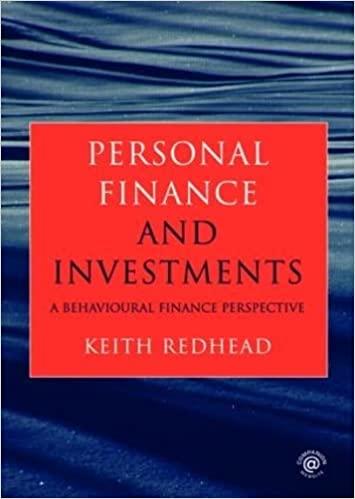Answered step by step
Verified Expert Solution
Question
1 Approved Answer
Jim makes a deposit of 12,000 in a bank account. The deposit is to earn interested compounded annually at a rate of 6 percent per
- Jim makes a deposit of 12,000 in a bank account. The deposit is to earn interested compounded annually at a rate of 6 percent per year for 7 years.
- How much will have on deposit at the end of 7 years?
- Assuming the deposit earned a 9% rate of interest compounded quarterly, how much would he have at the end of 7 years?
- In comparing (a) and (b), what are the respective effective annual yields? Which alternative is better?
Step by Step Solution
There are 3 Steps involved in it
Step: 1

Get Instant Access to Expert-Tailored Solutions
See step-by-step solutions with expert insights and AI powered tools for academic success
Step: 2

Step: 3

Ace Your Homework with AI
Get the answers you need in no time with our AI-driven, step-by-step assistance
Get Started


